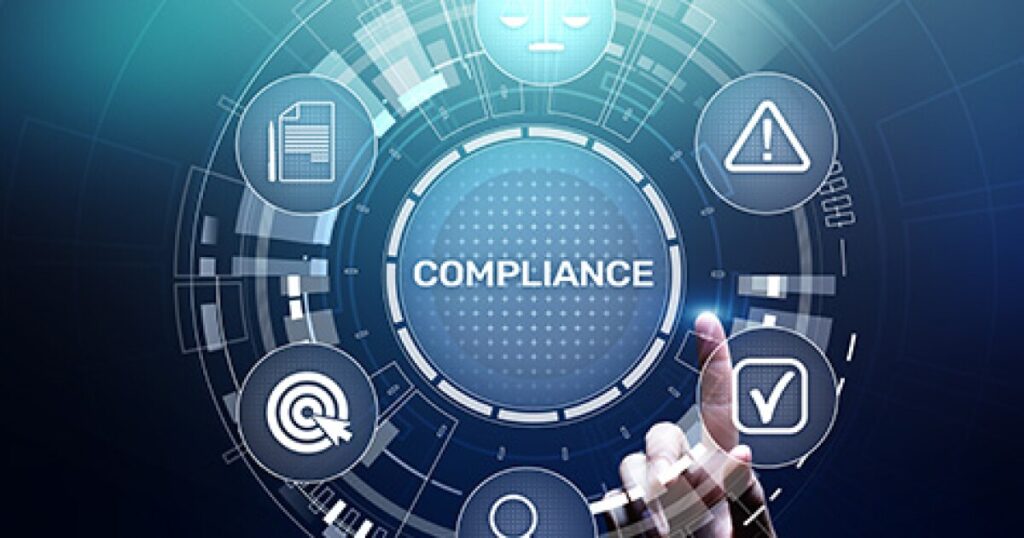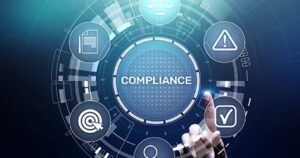In the current competitive business world, corporate compliance has turned out to be a fundamental aspect of sustainable development and practice of ethics. Corporate compliance meaning can be defined as an obligation of a company to adhere to internal rules, legal norms, and industry regulations that regulate business practices of the company. It also makes sure that, the companies are responsible, transparent, and the integrity is held, in all decision making processes. The reason compliance is not only a legal compliance but also a strategic move that prevents businesses against regulatory fines, destruction of their reputation, and disruption of their operations.
The Increasing Significance of Company Compliance in 2025
With the ever-changing global regulations, the year of 2025 is already formulating itself to be a year of compliance management. Governments globally are tightening their structures to prevent financial frauds, data security breach and unethical business conduct. All the businesses, big or small, are supposed to be accountable with properly designed corporate compliance programs. These programs act as a guide in terms of keeping track of employee behavior, handling third-party relations, and detecting possible violations of the compliance prior to their development into critical issues. The issue with companies that are conducting business across several jurisdictions is that they have to ensure consistency, but they need to comply with the laws and regulations specific to the region they are doing business.
Fourth Tenets of a Corporate Compliance Programme
A full corporate compliance program in 2025 cannot be summed up to documentation and policy statements. It must incorporate good governance systems, ongoing employee development, open channels of reporting, and risk mitigation systems. The program should be in line with the strategic goals and culture of the organization so that compliance becomes common between various departments. Close interaction between the leadership, compliance officers and employees is the key to creating a proactive atmosphere where ethical conduct is promoted and strengthened. Introducing compliance into the corporate DNA, the businesses will be able to minimize misconduct and sustain credibility with the stakeholders.
Dealing with Corporate Compliance Risks
Corporate compliance risks are unique in each organization and may impact the organization in terms of financial stability and brand. Such risks can be brought about due to failure to abide by anti-money laundering regulations, data protection regulations, taxation regulations or labor requirements. Technological changes are among the largest dangers in 2025, particularly in such directions as artificial intelligence, online payments, and teleworking. With the new technologies embraced by companies, internal controls and privacy also need to be enhanced to prevent the violation of regulations. Frequent audits, feedback of the policies and internal surveying may assist in recognizing the weak areas in the compliance framework and provide prompt correction.
Corporate Compliance Services and the Role
Corporate compliance services have been embraced by many organizations to boost the performance and the effectiveness of their compliance programs. Some of these services are normally assistance with the development of compliance frameworks, risk assessment, regulatory reporting, and staff training of best practices. They also help in maintenance of compliance with complicated international laws that might not be similar with the local laws. The use of such services by professionals can save the business a lot of time and resources and mitigate the chances of incurring the non-compliance penalties which are often costly. The main benefit of outsourcing or consulting compliance professionals is the ability to access specialized information and technology, which constantly changes in line with the international regulatory tendencies.
Corporate Verification as a Major Compliance Intervention
Corporate verification is another critical component of the compliance checklist that is used significantly to determine and confirm the authenticity of business partners, vendors, and the clients. It assists organizations in making sure that they do not deal with fraudulent organizations or shell companies. Corporate verification is often done by verifying registration, ownership structure and authenticity in operation to ensure that the business is in existence and operating within the limit of the law. In the year 2025, such a verification process is becoming more automated and data guided and the validation of corporate information will become faster and more accurate. Strict verification processes reduce the risk of being exposed to financial crimes and enhance a transparent business environment.
Establishing a Good Compliance Culture
Any organization that succeeds is built on a high compliance culture. The leadership should be able to show a steady dedication to ethical behavior through emulating and implementing accountability. The employees of any level must realize that compliance is not a single event, but a process of learning and adjusting. Workplace awareness and regular updates on the compliance can be achieved through regular workshops and communication campaigns that can inform the workforce. Once integrity and compliance becomes a core aspect of a company, the company forms long term trust with its customers, investors and even its regulators.
The Future of the Compliance of the Corporate
In the future, the prospects of corporate compliance are likely to get more technological. The use of automation tools, artificial intelligence, and data analytics is changing the way firms identify and avert instances of compliance violations. The technologies create the opportunity to monitor and analyze in real-time, which assists businesses in maintaining one step ahead of any changes in regulations. Nonetheless, technology will not be able to substitute human judgment. The key to successful compliance strategies in 2025 and beyond will be a balanced strategy that will incorporate innovation and ethical leadership. It is now about to be seen that organizations that have made heavy investments in sound corporate compliance programs are better placed to emerge in a new world of stringent regulations and international examination. With the increase in the level of compliance, the capacity of being transparent and accountable will be a competitive influential factor, as opposed to a compulsory factor.
Conclusion
To conclude, the 2025 business corporate compliance checklist will focus on the significance of creating and building good governance, comprehending the changes in risks, and the necessity to have good verification processes. Through the development of effective compliance initiatives, the use of professional services and the introduction of a culture of integrity, businesses can protect their activities and retain confidence in the ever-evolving world. Compliance is not only about not getting punished but about developing resilience, making it sustainable and putting the organization in a better place to succeed in the long run in a relatively more regulated world market.
- Corporate Compliance Checklist for Businesses in 2025
- All the businesses, big or small, are supposed to be accountable with properly designed corporate compliance programs. These programs act as a guide in terms of keeping track of employee behavior, handling third-party relations, and detecting possible violations of the compliance prior to their development into critical issues
- Corporate Compliance
Related posts:
No related posts.






